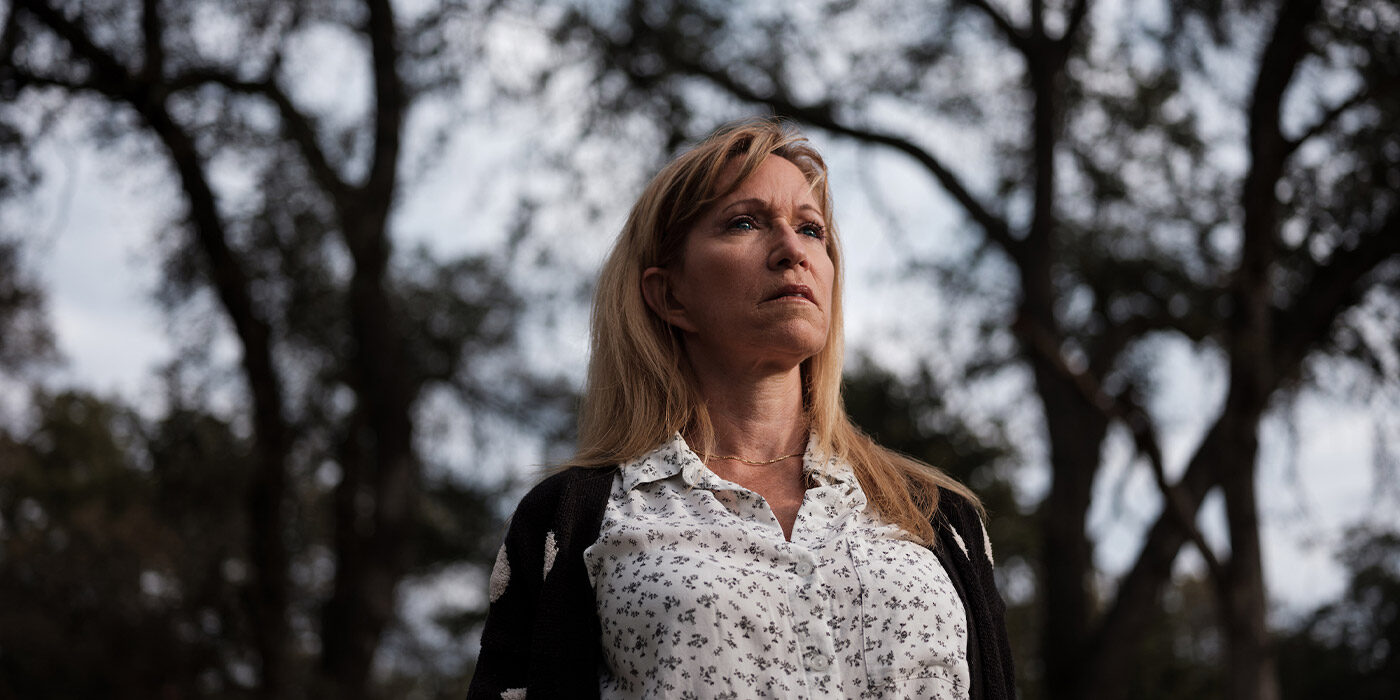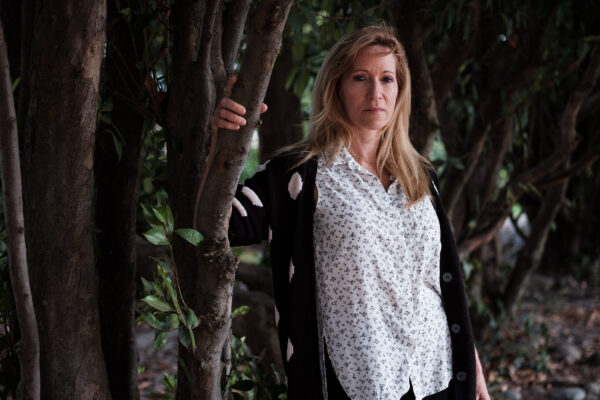The worst night of my life was the night that changed everything.
It was hot out. That’s the code word sex workers use to warn each other if police are nearby. I ducked into a card room called Georgianne’s to hide, where I busied myself with an arcade machine, slipping quarter after quarter into the coin slot to make the world go away for a moment — or at least for the length of one Ms. Pac-Man game.
That peace came to a halt when a man came up and flashed a wad of bills in my face. He told me to meet him out back so the police wouldn’t see him leave with me. I knew this was never a good idea. As a sex worker, if no one sees who you leave with, you may never come home. But I didn’t care and went with him anyway, thinking he was like any other client on any other night.
When we got to his house, he locked the door and blocked it with a fan. He said he was a police officer, but I knew he was lying. A police officer would never take me home. My gut told me not to go through with it, but when I tried to leave, he snatched me by the hair and dragged me back into his house. He raped me several times that night. He even tried to kill me.
In the movies, when someone strangles you, you die. That isn’t always the truth. You come back and you breathe again and you’re in the same hell that you left, surrounded by blood and broken glass. I didn’t know whether the blood was his or mine, but it didn’t matter. That night, I fought for my life like only the dying can.
I tried everything, until finally I played dead and he bought it — but it didn’t stop him. Thinking I was dead, he dragged me out the back door and down the steps to his car, where he raped me one more time before throwing me in the trunk. I watched, still playing dead, as he went back inside the car to clean up the mess. I had a chance to run — and I took it.
My legs wouldn’t work. My foot had been badly injured, too. So I crawled and limped away until I made it to the first cross street. A car drove up. Four men were inside. It was only when I saw the looks on their faces — pure terror — that I realized the extent of what that man did to me.
“We don’t want anything to do with this,” said the driver. “But we’re gonna take you somewhere safe.”
They took me to the UC Davis Medical Center. I ended up in the rape unit, where nurses washed off the blood, stitched up my wounds, and gave me a rape kit before calling the police. Even though I knew I might be arrested for prostitution, I decided to report anyway — that man was too dangerous, and I didn’t want anybody else to go through what I did. I went straight to the district attorney, who looked at the pictures and the rape kit and decided to believe me.
But at trial, it became painfully clear that my word as a sex worker was worthless. I’ll never forget the way it felt to take the stand and retell the experience for an entire courtroom, answering questions about why I was in a certain place at a certain hour, as if it was my fault. I knew they judged me for what I did for a living, and the outcome of the case speaks volumes to how society sees sex workers: The man who kidnapped, raped, and tried to kill me was sentenced to 45 days of community service. According to the court, what he did to me that night amounted to petty theft.

My story is as shocking as it is common. Sex workers frequently face violence on the job, but we usually won’t report because we might be arrested in the process. When we do report, we don’t get heard because of the social stigma that being a sex worker carries. My experience that night and the injustice that followed spurred me to fight for the rights society denied me. And the first step in that fight is to decriminalize sex work.
Since sex workers do not have access to many of the same protections as other workers, we have to fend for ourselves. It isn’t easy to keep yourself safe if you are constantly afraid of being arrested. Those of us who work on the street will rush through client negotiations to avoid being seen, sometimes jumping into dangerous situations with violent clients because we didn’t have time to screen the client first. People who work online also have limited ability to watch out for their safety. In 2018, the passage of SESTA/FOSTA banned many online sex work and client screening platforms that sex workers use to stay safe. And once you’re caught in a risky situation, there’s nobody to call for help without risking arrest.
Criminalization also puts us at higher risk of police abuse. Throughout my career, I’ve been sexually assaulted and robbed by the police several times, and I couldn’t do anything about it. I have also encountered police officers who helped me — in some instances, possibly saving my life by warning me of areas to avoid if other police were patrolling nearby. But sex workers should not have to rely on chance to stay safe, and those who swore to serve and protect should be helping rather than harming us.
I have been to jail several times for prostitution. Other sex workers, such as trans women of color, are even more likely to be arrested, incarcerated, and harassed, partly because the police profile and target them. The punishment doesn’t end with a jail sentence — having an arrest for prostitution on your criminal record is a scarlet letter, considered a crime of moral turpitude. It makes it difficult or sometimes even impossible to get a job, sign a lease, or access everyday services — even banking. I was shocked when I got a letter from my bank announcing they were closing my account. Even though I had good credit and had been a customer for decades, they said my job made me a “high risk” customer and violated their code of ethics. If sex work were decriminalized, banks would probably have fairer policies, and it would be easier for us to advocate for our rights.
Opponents of decriminalization are often trying to “save” us from trafficking and exploitation. In my experience, attempts to save sex workers through law enforcement have done the opposite. Raids, arrests, and stop-and-search policies push us further into the margins, where violence goes unchecked. Making an occupation illegal does not stop exploitation and trafficking — exploitation and trafficking proliferate because sex workers can’t report, don’t have resources, and social stigma silences us. Sex workers are not infantile beings who don’t know what’s good for us. We are the last people who want to perpetuate exploitation and harm, because we’re the ones who are affected. We want labor rights, we want justice, and we want to be treated the same as any other worker under the law. First and foremost, we need people to listen to us.
I’m proud to be a part of the movement for sex workers’ rights. In my home state of California, we banned the use of condoms as evidence of sex work by police. This will encourage workers to carry and use protection without fear of arrest, protecting both their health and that of their clients.The same law also allows sex workers to report violent offenses such as trafficking, rape, and robbery with complete immunity from arrest — not just for prostitution, but for misdemeanor charges related to sex work or drugs. Every day I see more signs that attitudes are changing, including at the federal level. Last year, Congress introduced the SAFE SEX Workers Study Act, which calls for studying the effects of SESTA/FOSTA on sex workers’ safety and well-being. Decriminalization is by no means a panacea, but it will create positive changes for sex workers.
If sex work were decriminalized, sex workers would be able to seek help when we’re in danger. We could go to the hospital in times of emergency without fear of arrest. We would have more autonomy. And we wouldn’t get entangled with the criminal justice system for a misdemeanor that will follow us for life. Decriminalization is the step we need to take to keep us all safe.
Kristen DiAngelo, Executive Director, Sex Workers Outreach Project Sacramento

